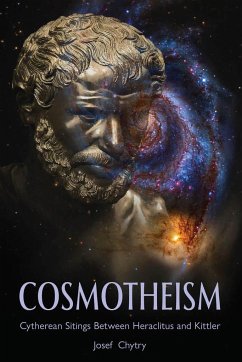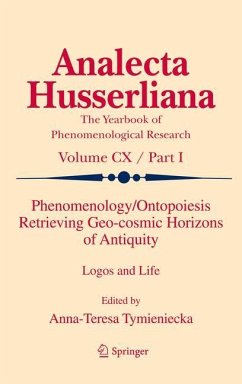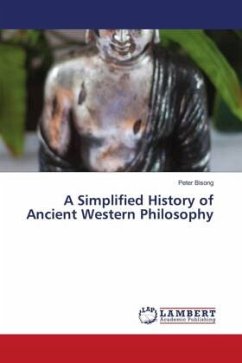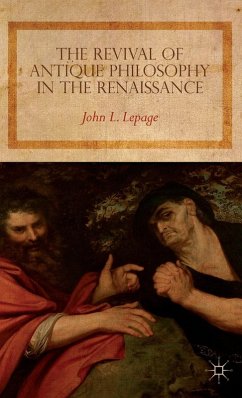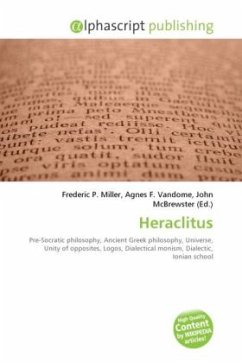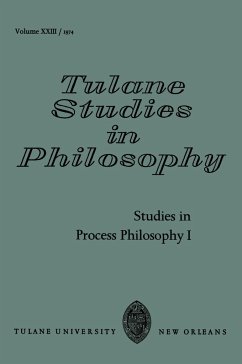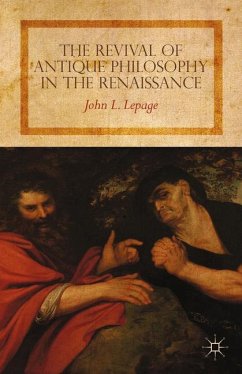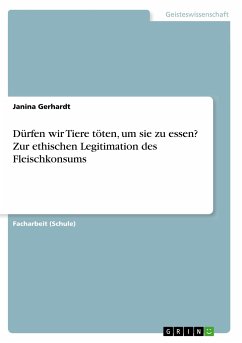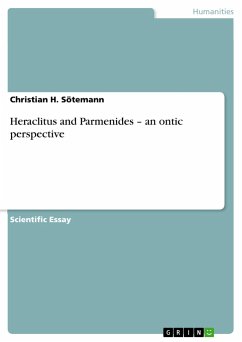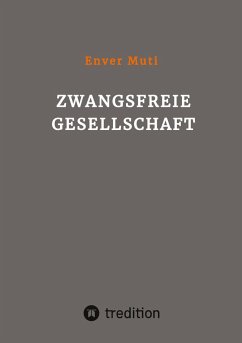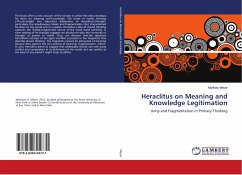
Heraclitus on Meaning and Knowledge Legitimation
Unity and Fragmentation in Primary Thinking
Versandkostenfrei!
Versandfertig in 6-10 Tagen
39,99 €
inkl. MwSt.

PAYBACK Punkte
20 °P sammeln!
This book offers a new account of the context in which Heraclitus develops his views on meaning and knowledge. The frame of mythic thinking affords insight into important dimensions of Heraclitus's thought, particularly the simultaneous holism and fragmentation that characterized his ideas on the world and on wisdom. Heraclitus's idea of shared thinking captures the holistic-fragmented nature of the social bond perfectly. A close reading of his thought suggests we should not take the continuity of thought as passive or stable. Thus, we discover that the signature Heraclitean concept of the ago...
This book offers a new account of the context in which Heraclitus develops his views on meaning and knowledge. The frame of mythic thinking affords insight into important dimensions of Heraclitus's thought, particularly the simultaneous holism and fragmentation that characterized his ideas on the world and on wisdom. Heraclitus's idea of shared thinking captures the holistic-fragmented nature of the social bond perfectly. A close reading of his thought suggests we should not take the continuity of thought as passive or stable. Thus, we discover that the signature Heraclitean concept of the agon (conflict) is present in the fragments that describe shared thinking. The fragments cannot be exhausted of meaning because they capture the very essence of meaning, fragmentation, within. In sum, Heraclitus seems to suggest that philosophy should not wish away conflict and competition in its definitions of the world, but see conflict as the basis of any world it might hope to define.



